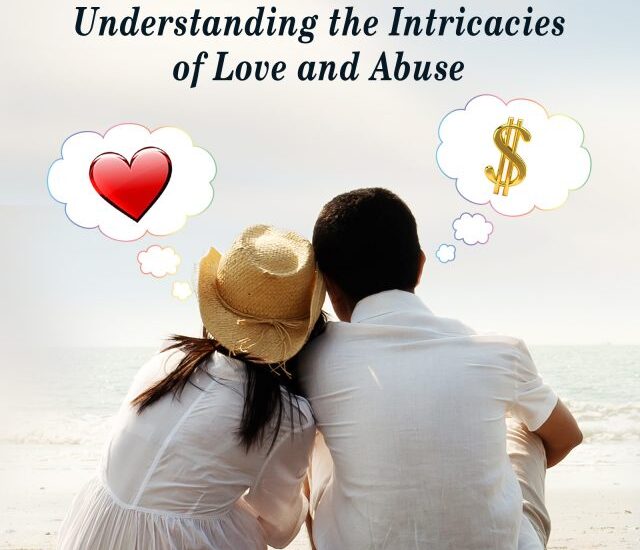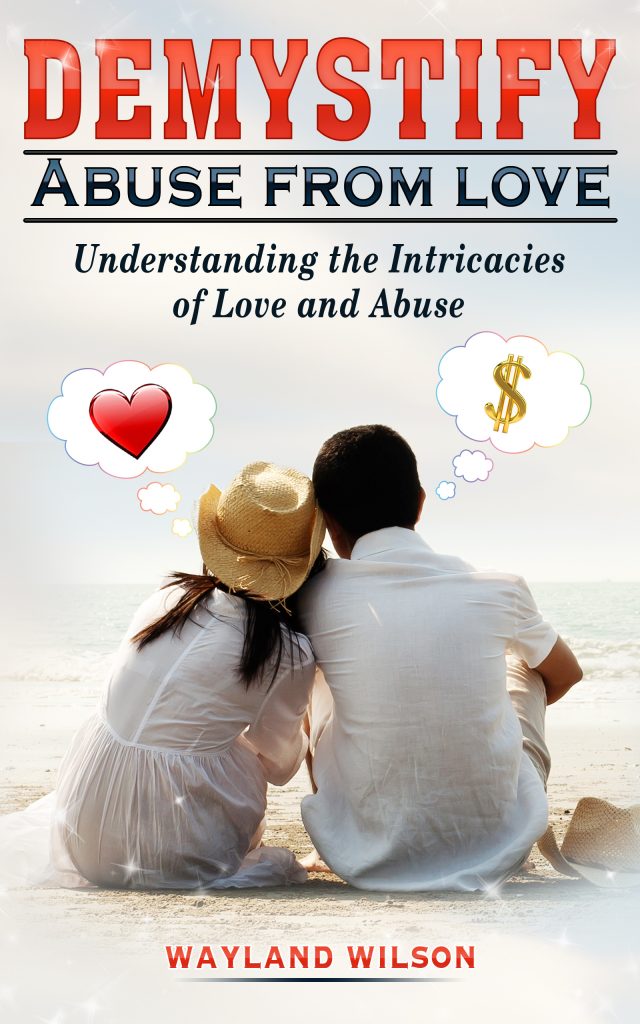
How to tell abuse from real love?
Introduction:
Falling in love can be the most beautiful thing in the world. But if your partner is abusive and a narcissist. It can be the most damaging thing as well. An abusive relationship will not only affect your mental health but also make you extremely self-conscious.
According to psychology today’s Andrea Matthews, an abuser uses techniques such as “constant criticism, verbal abuse, shaming, controlling, mind games, and isolating you from loved ones”.
They often belittle you by using phrases such as
“Nobody gives a shit about you”
“At least use a little makeup to make yourself acceptable”
“You are too clingy”
And the list goes on……….
The abusive cycle has 4 stages tension building, incident, reconciliation, and calm. With each stage you became more entrapped in this toxic cycle _ says Dr. Lenore Walker
Hence, this cycle of abuse is so toxic and entrapping that it is very difficult to recognize it when you are in that situation yourself. But no matter what nobody deserves to be treated that way.
This article will help you learn the signs of an abusive relationship and what to do next.
Why is it difficult to identify an “abusive relationship”?
“Emotional abuse is one of the hardest forms of abuse to recognize,” says LeNaya Smit (owner of Kaleidoscope Family Therapy).
An abuser will never show his/her true color the first day you met them. Firstly they will disguise you with their charismatic personality, flowers, dates, and promises. After you become fully dependent on them. They will start showing those toxic traits they have been hiding.
The process is so subtle that you don’t even realize when your relationship has become abusive. A narcissist will always make you feel guilty and worthless. You became so much self-conscious that, instead of questioning them. You start doubting yourself.
According LeNaya Smithto
“It can be subtle, covert, and manipulative. It chips away at the victim’s self-esteem, and they begin to doubt their perceptions and reality. It is a vicious cycle that many, unfortunately, never escape.”
Hence it’s very much important to look for “red flags” before blaming yourself.
Types of abuses in a relationship
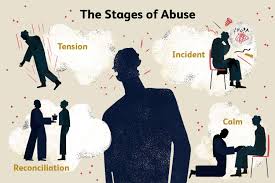
Emotional isolation and negligence:
“I went from the love of his life to a source of frustration and a burden. Every time I wanted to spend time with him, it would cause a fight,” said Eva (abuse survivor)
A narcissistic partner will always emotionally neglect you. They never openly communicate with you on issues. Whenever you try to talk to them. Even if it’s nothing disturbing and just casual talk. They will not look at your direction or show any interest. And when you ask for their attention they will label you “needy”.
Not only that, but an abusive partner will also isolate you from your loved ones. They always stop you from seeing friends and attend family functions. Whenever you talk on the phone with someone they will distract you in some way or another. They never put a good word for you in front of your family, friends or co-workers. Labeling you as unstable and hysteric. Their only agenda is to make you feel unloved and isolated.
So, always ask yourself
“Do I feel neglected and isolated in this relationship?
Calling you mean words:

The most obvious sign of an abusive partner is that they never have respect for you. They will always be shaming and abusing you. Using phrases like “you are whore, slut” Or “you belong to streets”. They will also call you pet names such as “fatty”, “little knuckle dragger” etc.
These types of verbal abuses are not only limited to home but outside as well. A narcissist will always deteriorate your image in front of everyone.
Along with these harsh types of abuses. They will also gaslight you. By calling you idiot, dumb, and phrases like “use your brain” etc.
“Gas lighting is such a malicious form of emotional abuse because it causes you to question your experiences, so it can be difficult to identify the warning signs.” Says Bergen
Hence always ask you’re self
“Am I being respected in this relationship?”
Controlling you:
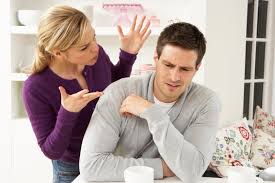

In an abusive relationship, your partner will always try to control you. You can never be yourself with them. Normally, in a healthy relationship, we always tend to do things that please our partner. We show the best version of ourselves but at the same time, we don’t feel judged.
But a narcissist will always judge and criticize you. From your clothing to who you are friends with. They will treat you as if you are a child and know nothing of this world.
They will digitally spy on you, always keep a check on your whereabouts, control you financially, always lecturing and ordering.
At the same time, when it comes to them. They will make unilateral decisions. They will never bother to ask your opinion and do as they please.
Hence always ask you’re self
“Am I being myself in this relationship?”
Threatening and yelling:

“Threatening to leave me or actually leaving me for short periods of times were his way of asserting his power onto the relationship. If I wasn’t exactly how he wanted me to be, he would start threatening me in that way._ says Eva (abuse victim)
It’s pretty normal for people to raise their voices if the conversation heats up. But that happens rarely. On contrary, an abusive partner will yell at you unnecessarily. It feels as if they are always searching for reasons to yell. No matter what you do they will always find some things to blame you with?
Not only that, but they also blackmail and threaten you. Often using words like “if, then” to intimidate you. Threats include physical harm, disclosing your personal information, and stuff like that.
They can also play victims by blackmailing you with manipulative statements such as “I will kill myself if you don’t do this”. But in reality. All they want is to impose their choices and decisions on you. No matter what way!
Hence always question yourself
“Am I feeling safe with my partner?”
Unpredictable and inconsistent:
Consistency and predictability is the key to a happy relationship. In a healthy relationship, you can always count on your partner and trust them. But that’s not the case in a toxic relationship. An abusive partner will never be consistent or predictable.
Sometimes they will be all sweet and caring. Will shower you with gifts and roses. Will compliment you. But sometimes they will behave like a villain and act all bad, moody, and pissed off. Their behavior changes at the drop of hat. You can never predict their reactions. And that in return it will make you extremely anxious and self-conscious.
Hence always ask yourself
“Is my partner reliable?”
Codependence.
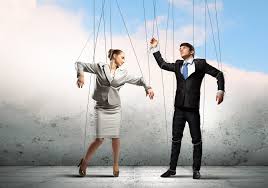
In a healthy relationship, one can always be themselves and free to make their own choices. There is a sense of individuality. In a codependent relation, your every action is according to your partner’s abusive behavior. You always seek their validation. They treat you like a puppet just to boost their own toxic ego.
You are in a codependent relationship when
- Neglect your own desires and needs.
- Suppress your emotions.
- Ignore your family and friends.
- Always see yourself from the abusers eye.
- You are the only one making scarifies.
- Feel unloved and worthless.
These are some major “red flags”.
So always ask you’re self
“Am I free to make my own decisions?”
Violence

Violence is an extreme type of abuse. In which your partner aims to psychically hurt and punish you. This is a punishable crime regardless of age. Violence includes
- Pushing you around
- Forcing you to have sex.
- Hurting you
- Harass you with weapons
- Destroy your belongings
If you are a victim of any of these types of abuses. Immediately report to the police or reach out for help!
Online-Therapy Rating: [5 out of 5 stars!]
What “real love” feels like?
“Healthy, interdependent, and caring relationships include taking care of one another, prioritizing the relationship, and intense affection and love,” says Louis Laves-Webb ( psychiatrist).
Following are the most important aspects of a long lasting and happy relationship.
- Feeling safe with your partner:
When you are in a relationship. It’s your partner’s responsibility to make you feel safe. They will never hurt you physically or emotionally. Not only that, you are free to make your decisions and choices. When two people are in relation it’s normal to have a disagreement but they will never go over the board and make you fear them.
- Easy to communicate with
Open communication is the first step towards a happy relationship. Nobody is perfect everyone has some negative traits. There are some things that you can accommodate and some need to be changed. Someone who loves you will always be ready to listen and address those issues.
Not just that, they always make you feel at home so that you can talk about everything with them. Let it be gossiping about your neighbors or venting your problem. They are always there for you.
- Acceptance
Every person is unique. Two people in a relationship can’t have some views and perspectives. When your partner really loves you. They will always respect your individual ideas and perspective. They will not base their love and behavior on simple disagreements.
- Encouragement
As a couple, you do enjoy your time with your partner. But at the same time they will not restrict you do things individually. They will also support and encourage your decisions. The same is the case for them. They will also have some personal boundaries.
- Trust

Trust and love go side by side in a relationship. If your partner really respects and loves you. They will never spy on you, ask your whereabouts or go through your phone. There is a mutual understanding between both of you. And that’s what makes a relationship beautiful.
How to get out of an abusive relationship?
When we see some being abused in a relationship. The first thing that comes to our mind is “why doesn’t she get rid of him?” or “why is he still in this relation?” but the reality is very different. Often your emotions suppress your ability to make rational decisions. As humans, love is a feeling we can never neglect and that’s what keeps us in an abusive relationship.
But At the end of the day, you have to come up with a decision that will benefit you because as much as you love your abuser. You still don’t deserve to be treated that way. While making a decision first consider these things
- If you believe that your partner loves you and will change for you. This is not going to happen. Even if they love you they still have deep psychological issues.
- It’s pretty normal of you to think that you can help them. But staying in an abusive relationship and suffering from repeated abuses will only encourage them. and worsen the situation.
- If it scares you how will they react when you leave them. Or how will you handle things and children (if any) on your own? Then don’t let the fear stop you. Anything is better than being tortured and abused daily. At the end, you will have a bright future for yourself and your children.
Emotional rebuilding after an abusive relationship.
There is no visible effect of an abusive relationship. But deep down you are broken and mentally exhausted. It seems like you are carrying a heavy burden of emotional pain on your shoulders.
The survivors often suffer from anxiety, depression, and post-traumatic stress. But there are several ways you can emotionally rebuild yourself.
Give yourself time: after being controlled, abused, and humiliated. It will take time for you to feel normal again. So don’t rush in. just like psychical wound, emotional wound also takes time to heal.
Draw your boundaries: as explained by the online counseling service 7 Cups, boundaries help you to identify your limits.
“For me, healing meant recognizing that my needs matter and that they are my responsibility, and that I can choose who I surround myself with,” said Jordan (abuse survivor)
Forgive yourself: you being a victim of abuse is never your fault. Never be in guilt and shame. Regardless of if someone believes your narrative or not.
Help is available
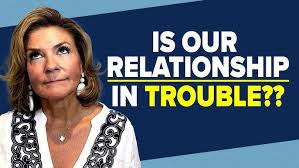
If you are a victim of any type of abuse. And need help or protection. There are many organization to help.
You can ask for help at
You may also go for rehabs such as https://www.rehab-recovery.co.uk/resources/domestic-abuse-substance-misuse/ for further assistance and help.
You can also search for a help center specific to your country or area.
Conclusion:
Hence, from the above discussion, we can conclude that being in an abusive relationship can have serious consequences. Everyone has their own journey of healing. But time is a great healer. Give yourself some space. Surround yourself with loved ones. And help your friends who are struggling with it.
Have you ever been in an abusive relationship? Share your journey in the comment box below. Maybe it could bring great help to someone out there!
Resources
Dr. Lenore Whttps://www.helpguide.org/articles/abuse/domestic-violence-and-abuse.htmalker
Kaleidoscope Family https://www.helpguide.org/articles/abuse/domestic-violence-and-abuse.htmTherapy
LeNayahttps://www.helpguide.org/articles/abuse/domestic-violence-and-abuse.htm Smithto
Louis Lavhttps://www.helpguide.org/articles/abuse/domestic-violence-and-abuse.htmes-Webb
